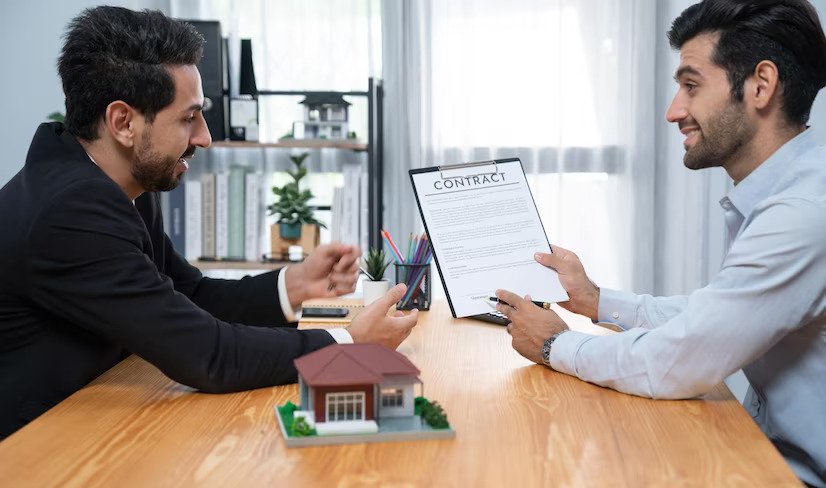First-Time Homebuyer’s Checklist: From Search To Closing
Nothing matches the happiness and excitement of buying a new first home. However, as exciting as it sounds, it comes with its own set of complexities.
This comprehensive homebuyer?s checklist consists of guidelines that are vouched for by expert estate agents, including Sittingbourne estate agents, that will take you from the initial search all the way to closing the deal on your dream home.
Here Are The Top 15 First-Time Homebuyer?s Checklist

1. Comprehend Your Financial Situation
Before you even start browsing listings, it?s crucial to get a clear picture of your financial standing. Determine your budget, considering factors like your income, savings, and existing debt. If you are looking for houses for sale in Kent this will aid you in establishing a price range for your potential new home and prevent you from overextending yourself financially.
2. Deposit All Your Savings
All across the United Kingdom, a typical deposit is around 10% to 15% of the property?s purchase price. The more you can put down upfront, the better your mortgage terms are likely to be. Begin by saving early and explore government schemes like Shared Ownership or Help to Buy. Both help first-time buyers in securing their deposit.
3. Check Your Credit Score
Your credit score plays a significant role in your ability to secure a mortgage with favorable terms. Request a copy of your credit report and address any issues or discrepancies before applying for a mortgage. A higher credit score can lead to lower interest rates and better loan options.
4. Seek Pre-Approval for a Mortgage
Once your finances are in order, seek pre-approval for a mortgage from a reputable lender. This step offers you a clear understanding of the exact mortgage amount you can borrow. Further, enquire how it assists sellers in taking your offer seriously when you find your dream home.
5. Identify Your Housing Needs and Wants
Make sure to consider other factors like location, the number of bedrooms, proximity to schools or work, and any specific features you desire. This will help narrow down your search and save you time in the long run.
6. Start the House Hunt
Now comes the exciting part ? searching for your ideal property. Use digital platforms, work with a local estate agent, and visit open houses to get a feel for the market. Be patient, as finding the right property can take time.
7. Attend Property Viewings
When you find properties that match your criteria, schedule viewings. During these visits, thoroughly inspect the property, paying attention to its condition, potential repair needs, and overall layout. Don?t be afraid to ask questions and request documentation on property history.
8. Make an Offer
Once you find the perfect home, it?s time to make an offer. Your estate agent can guide you through this process and help you determine a competitive offer price. Be prepared for negotiation, as sellers may counteroffer before accepting your proposal.
9. Hire a Conveyancer or Solicitor
After your offer is accepted, you?ll need a conveyancer or solicitor who handles all the legal aspects of your transaction. They are also responsible for reviewing contracts, conducting searches on the property, and ensuring a seamless transfer of ownership.
10. Complete the Mortgage Application
With your offer accepted, it?s time to finalize your mortgage application with your lender. Provide all necessary documentation promptly to avoid any delays in the approval process.
11. Arrange a Home Inspection
A home inspection is essential to uncover any hidden issues with the property. While it?s not a legal requirement in the UK, it?s highly recommended to protect your investment. If issues arise, you can negotiate repairs with the seller or adjust your offer accordingly.
12. Interchange Contracts
After all parties are satisfied, contracts are exchanged, and you?re one step closer to homeownership. At this point, you?ll generally pay a deposit that is somewhere around 5-10% of the buy price that safeguards the property.
13. Complete the Sale
Before closing, ensure that all necessary paperwork and finances are in order. Your conveyancer will guide you through the process and arrange for the transfer of funds from your lender to the seller. Once completed, you officially become the owner of the real estate.
14. Plan for Moving Day
As the closing date approaches, start planning your move. Arrange for removal services, transfer utilities, and notify relevant parties of your change of address. Moving day can be hectic, so having a plan in place will help reduce stress.
15. Close the Deal
Finally, it?s when you close the deal and receive the keys to your new home. Your solicitor takes the responsibility of handling the legalities, and you?ll receive a closing statement detailing all the financial transactions. Congratulations, you?re now an official homeowner!
Additional Tips for First-Time Buyers:
Budget for ongoing costs: Remember to account for ongoing expenses like property taxes, insurance, maintenance, and utilities in your budget.
Consider resale value: Even if you plan to stay in your first home for a while, it?s wise to think about its potential resale value down the road.
Build a contingency fund: Having an emergency fund in place can provide peace of mind when unexpected expenses arise.
Explore available incentives: Look into government incentives and grants for first-time buyers to make the process more affordable.
Seek professional advice: Don?t hesitate to consult with experts throughout the procedure, including mortgage brokers, estate agents, solicitors, and surveyors.
Purchasing your first house is a significant milestone, and with the right guidance, it can be a smooth and rewarding experience. By following this homebuyer checklist and seeking expert advice when needed, you?ll be well-prepared to embark on your homeownership journey in the UK. Best of luck in finding your perfect property!
Read Also:






















